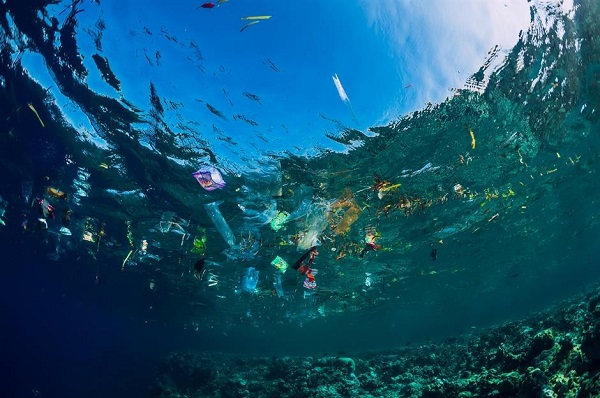New Delhi, (Asian independent) India, Australia, and Singapore have joined forces for research interventions toward monitoring and assessing marine litter and plausible sustainable solutions to address the global marine plastic pollution issue, an official statement said on Tuesday.
Delivering the keynote address at a virtual international workshop on combating marine pollution, focusing on marine plastic debris on February 14 and 15, held by India, in partnership with the Australian and Singapore governments, India’s Secretary, Earth Sciences, Dr M. Ravichandran, suggested considering the application of technological tools such as remote sensing, artificial intelligence and machine learning to map the distribution of marine plastics and developing models to understand the dynamics of plastics in the Indian Ocean.
He also emphasised that a well-designed and tailor-made management strategy considering regional distinctiveness will significantly reduce plastics in the environment, an Earth Sciences Ministry statement said.
The event also provided an impetus to East Asia Summit (EAS) countries countries for exploring and informing each other about the challenges, questions, and solutions to marine litter – especially plastic research, use, design, disposal, recycling, and future collaborations for a plastic-free and healthy ocean for sustainable development through knowledge partners – India’s National Centre for Coastal Research (NCCR), Singapore and Australia’s Commonwealth Scientific and Industrial Research Organisation.
It brought together the world’s leading experts, scientists, government officials with policy expertise, and representatives from industry, innovation and informal sectors. The sessions involved panel discussions and interactive break-out sessions to encourage discussion amongst participants from the EAS countries.
The EAS is the premier forum for discussions on important strategic issues in the Indo-Pacific and a leading confidence-building mechanism. Since its inception in 2005, it has been advocating regional peace, security, closer regional cooperation and prosperity of the Asia-Pacific and the Indian Ocean region.
“The EAS is uniquely placed to share expertise and lessons learned between regions and sub-regions faced with interlinked and similar challenges to develop sustainable transboundary solutions. EAS countries recognise the coastal and marine plastic pollution challenge. Prime Minister Narendra Modi had announced the agenda of promoting maritime cooperation in the wider Indo-Pacific region at the 14th EAS held in Bangkok in November 2019,” the statement said.
The workshop had four major sessions: the magnitude of the marine litter problem-monitoring programme and research on plastic debris in the Indo-Pacific Region, best practices and technologies, solutions to prevent plastic pollution, and polymers and plastics: technology and innovations and opportunities for regional collaboration to remediate or stop plastic pollution.








